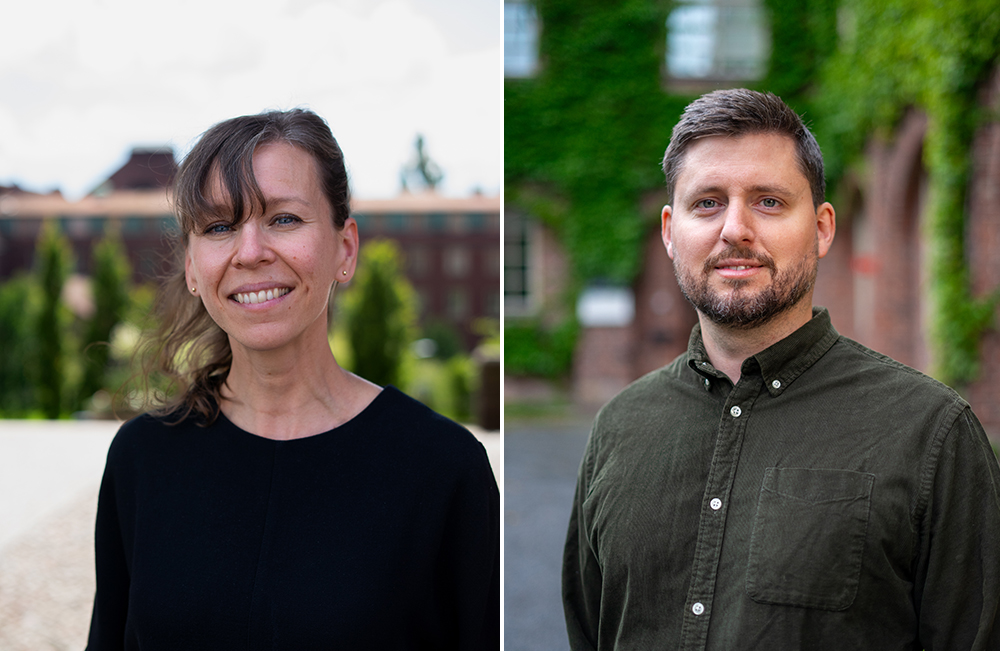ERC grants to develop medicines and sustainable materials

One conducts basic research in organic chemistry, the other in fibre and polymer technology. Helena Lundberg and Tobias Bensefelt have been awarded ERC Starting Grants 2024 for projects in their respective research areas.
Happy and excited! That's how Helena Lundberg, docent in organic chemistry, describes her feelings after being awarded a grant of EUR 1.5 million from the European Research Council (ERC) in fierce competition with other European researchers.
Lundberg's research project aims to develop methods to break strong chemical bonds in a sustainable way. The areas of application could be in the development of medicines and sustainable materials.
“A specific goal of the project is to use our developed methods to refine and adapt, for example, carbohydrates, amino acids and peptides for pharmaceutical purposes or biomaterials” she says.
The idea is for the chemical transformations to occur in an energy-efficient way and without generating large amounts of chemical waste.
Curiosity-driven basic research
“Our strategy for doing this is to use electricity to partially replace chemical reagents, and to use metal-free catalysts that are continuously regenerated in the processes.”
In the lab at KTH that Helena Lundberg leads, focus lies on curiosity-driven basic research.
“For us, new scientific knowledge is a goal in itself, while the results from have potential applikations in a number of areas. This could for example include production of pharmaceuticals, recycling of plastic materials and degradation of persistent organic pollutants.”
Tobias Benselfelt, a researcher in fibre and polymer technology, was both relieved and excited to be able to continue research in his field after his application was approved. The project focuses on developing adaptive separation techniques that can improve the production of bio-based pharmaceuticals.
Next generation of membranes
The goal is to make the purification process more efficient and, with the help of new technology, make it easier to optimise.
“My colleagues and I will be researching nano-networks whose pore size or other properties can be modified in response to different stimuli. This will allow us to control which particles or molecules pass through the networks,” Benselfelt says.
‘The ultimate goal is to use this as a dynamic technique that can be adjusted in real-time in a separation process. However, the main focus of the research project is to contribute a basic description of dynamic nano-networks for the separation of molecules and particles.
“Once the knowledge is in place, the technology can probably be used for many different separation processes and also in medical technology such as biosensors and drug delivery. My vision is the next generation of membranes controlled by digital infrastructure”, he says.
Text: Christer Gummeson gummeson@kth.se
